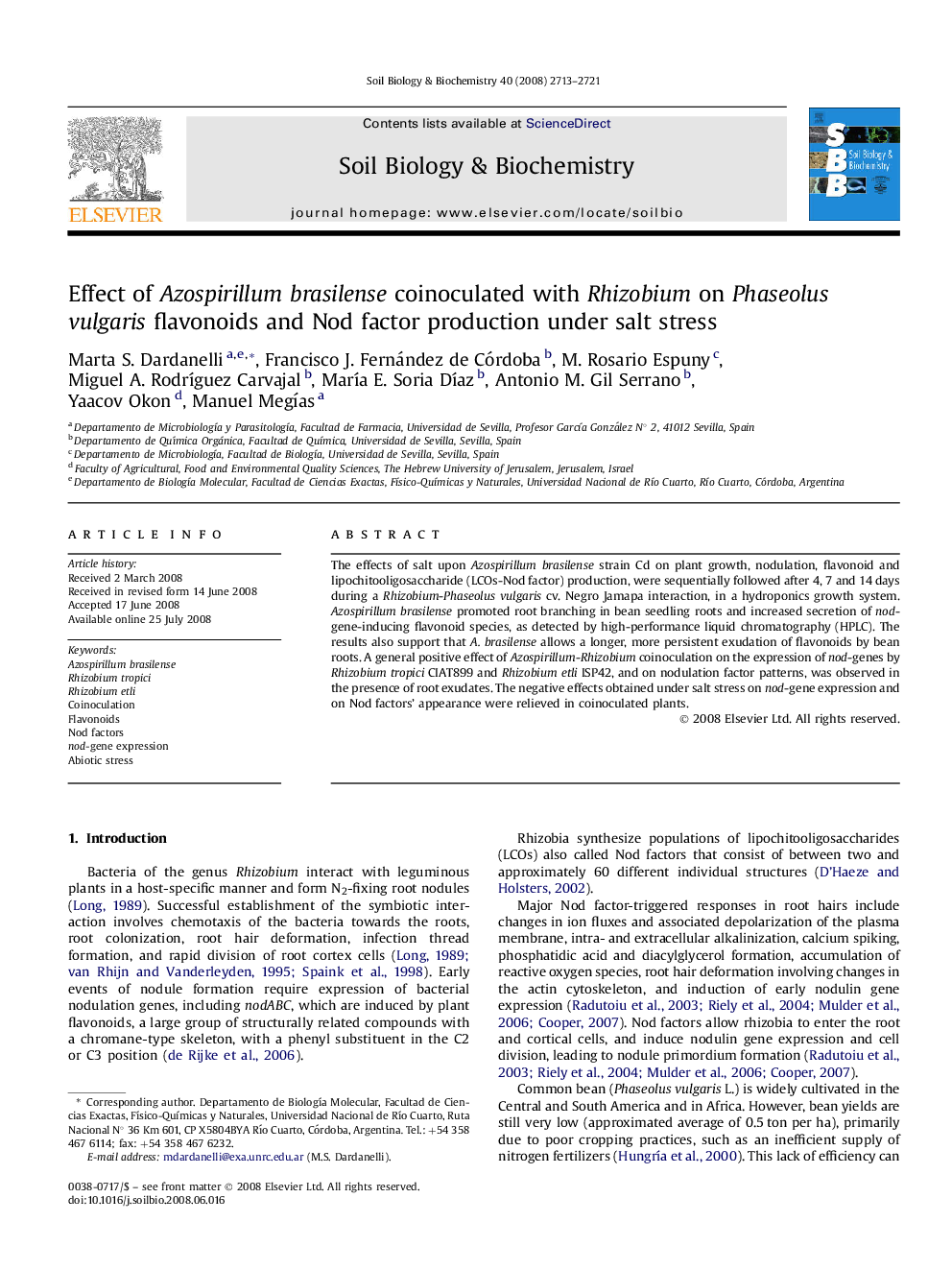| Article ID | Journal | Published Year | Pages | File Type |
|---|---|---|---|---|
| 2026831 | Soil Biology and Biochemistry | 2008 | 9 Pages |
The effects of salt upon Azospirillum brasilense strain Cd on plant growth, nodulation, flavonoid and lipochitooligosaccharide (LCOs-Nod factor) production, were sequentially followed after 4, 7 and 14 days during a Rhizobium-Phaseolus vulgaris cv. Negro Jamapa interaction, in a hydroponics growth system. Azospirillum brasilense promoted root branching in bean seedling roots and increased secretion of nod-gene-inducing flavonoid species, as detected by high-performance liquid chromatography (HPLC). The results also support that A. brasilense allows a longer, more persistent exudation of flavonoids by bean roots. A general positive effect of Azospirillum-Rhizobium coinoculation on the expression of nod-genes by Rhizobium tropici CIAT899 and Rhizobium etli ISP42, and on nodulation factor patterns, was observed in the presence of root exudates. The negative effects obtained under salt stress on nod-gene expression and on Nod factors' appearance were relieved in coinoculated plants.
